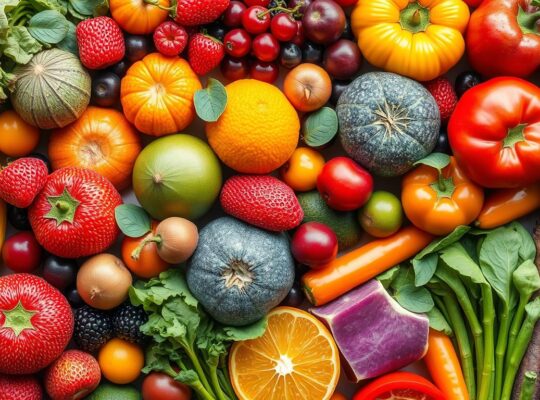Simple Ways to Prevent Obesity with a Balanced Diet
Have you ever wondered why so many people struggle with weight gain and how to prevent it? Obesity is a major health issue worldwide. It happens when someone has too much body fat, which can lead to serious health problems like diabetes, heart disease, and high blood pressure. But the good news is that balanced nutrition can help prevent obesity.
Balanced nutrition means eating the right types of food in the right amounts, and it’s one of the most important ways to stay healthy. In this article, we’ll explain how you can use balanced nutrition to avoid obesity and live a healthier, longer life.
What Is Obesity?
Obesity means having too much body fat. It’s usually measured using Body Mass Index (BMI), a tool that helps tell if someone is at a healthy weight for their height. If your BMI is 30 or above, you’re considered obese. This condition isn’t just about appearance—it can cause serious health problems.
Common Causes of Obesity
Obesity can happen for a lot of reasons, but some of the most common ones include:
- Not enough physical activity: Many people spend most of their time sitting—whether at school, work, or while playing video games—so they aren’t burning enough calories.
- Unhealthy eating habits: Eating too much junk food, sugary drinks, and snacks can lead to weight gain over time.
- Genetics: Sometimes, obesity runs in families. If your parents or relatives are overweight, you might have a higher chance of becoming overweight, too.
Health Risks of Obesity
Being obese can increase your chances of having other health problems, such as:
- Type 2 Diabetes
- Heart Disease
- High Blood Pressure
- Joint Problems
Because of these risks, it’s important to manage your weight, and balanced nutrition can help.
Defining Balanced Nutrition
Balanced nutrition means eating the right mix of foods to give your body all the nutrients it needs. A balanced diet includes a good amount of proteins, fats, carbohydrates, vitamins, and minerals. It also means drinking enough water to stay hydrated.
Components of a Balanced Diet
- Macronutrients:
- Proteins: These help repair and build muscles (like chicken, tofu, and beans).
- Carbohydrates: These give your body energy (like whole grains, fruits, and vegetables).
- Fats: These are needed for energy and hormone production (like olive oil and avocados).
- Micronutrients:
- Vitamins: Like Vitamin C for your immune system and Vitamin D for strong bones.
- Minerals: Like calcium for strong bones and iron for carrying oxygen in your blood.
- Hydration:
- Drinking enough water is just as important as eating the right foods. Water helps your body process nutrients, aids digestion, and keeps you feeling energized.
Caloric Intake vs. Energy Expenditure
To maintain a healthy weight, you need to balance how many calories you eat with how many calories you burn. If you eat more calories than you burn, your body will store the extra calories as fat. By eating a balanced diet, you can control your calorie intake and still get the nutrients your body needs to stay healthy.
Portion Control and Avoiding Overeating
One of the best ways to prevent obesity is by controlling how much you eat. Even healthy food can lead to weight gain if you eat too much of it. So, it’s important to watch your portion sizes and eat only until you’re full—not stuffed.
Choosing Nutrient-Dense Foods Over Calorie-Dense Ones
There’s a difference between nutrient-dense foods and calorie-dense foods. Nutrient-dense foods like vegetables, fruits, and lean meats provide a lot of vitamins and minerals without a lot of calories. On the other hand, calorie-dense foods, like sugary snacks and fast food, are high in calories but low in nutrients. Choosing nutrient-dense foods can help you feel full and give you energy without leading to weight gain.
Building a Balanced Diet for Obesity Prevention
Here’s a helpful table to show examples of nutrient-dense foods and their benefits for managing weight:
| Food Group | Nutrient-Dense Examples | Benefits for Weight Management |
|---|---|---|
| Vegetables | Spinach, broccoli, carrots | Low-calorie, high in fiber, keeps you full |
| Fruits | Apples, berries, oranges | Natural sugars, rich in vitamins, high in fiber |
| Whole Grains | Brown rice, quinoa, whole wheat | High in fiber, provides steady energy |
| Lean Proteins | Chicken breast, lentils, tofu | Helps build muscle, keeps you full |
| Healthy Fats | Avocado, olive oil, nuts | Helps you feel full, good for your metabolism |
Practical Tips for Meal Planning
- Plan your meals ahead of time to avoid unhealthy choices when you’re hungry.
- Include different colored foods on your plate—this helps ensure you get a variety of nutrients.
- Keep healthy snacks like fruit, nuts, or yogurt nearby so you’re less likely to reach for junk food.
Tips for Achieving and Maintaining Balanced Nutrition
Eating a balanced diet may seem tough at first, but here are some simple tips to help you get started:
Meal Planning and Portion Control
- Plan your meals: Think about what you’ll eat during the week and make a grocery list before going shopping.
- Use smaller plates: This can help you eat smaller portions without feeling like you’re eating less.
Mindful Eating: Listening to Your Body
Mindful eating means paying attention to your hunger signals and stopping when you’re full. Eat slowly and savor each bite. This can help you avoid overeating and make your meals more enjoyable.
How to Read Nutrition Labels
Reading nutrition labels on food packages can help you make healthier choices. Look for foods that are lower in sugar, fat, and sodium, and higher in fiber and protein. Knowing what’s in your food can make it easier to stick to a balanced diet.
Beware of Processed Foods and Sugary Drinks
Processed foods and sugary drinks are some of the biggest causes of weight gain. They are often full of extra calories but don’t provide much nutrition. Instead of soda or chips, try to choose whole foods like fruits, vegetables, and water.
Emotional Eating: How to Stay Consistent
Sometimes, people eat when they’re sad, stressed, or bored. This is called emotional eating. If you notice that you’re eating because of your emotions, try to find other ways to deal with stress, like going for a walk, exercising, or talking to a friend.
Eating well is just one part of staying healthy. Exercise is the other part. Physical activity helps you burn calories, build muscle, and feel good. When you combine healthy eating with regular exercise, you’ll not only prevent obesity but also feel more energetic and improve your overall health.
Benefits of Combining Nutrition and Physical Activity
When you eat well, you’ll have more energy to stay active. And when you exercise, your body uses food more efficiently, helping you maintain a healthy weight. By combining balanced nutrition and exercise, you’re setting yourself up for long-term success.
A Lifestyle Approach to Obesity Prevention
Preventing obesity is about more than just losing weight—it’s about living a healthier life. Balanced nutrition is one of the best ways to avoid obesity and the health problems that come with it. By choosing nutrient-dense foods, controlling your portions, and staying active, you’ll be on the right track to maintaining a healthy weight.
Remember, building healthy habits takes time. Start small, make gradual changes, and focus on a balanced diet that includes a variety of foods. Over time, these changes will help you stay healthy and prevent obesity for the long term.







